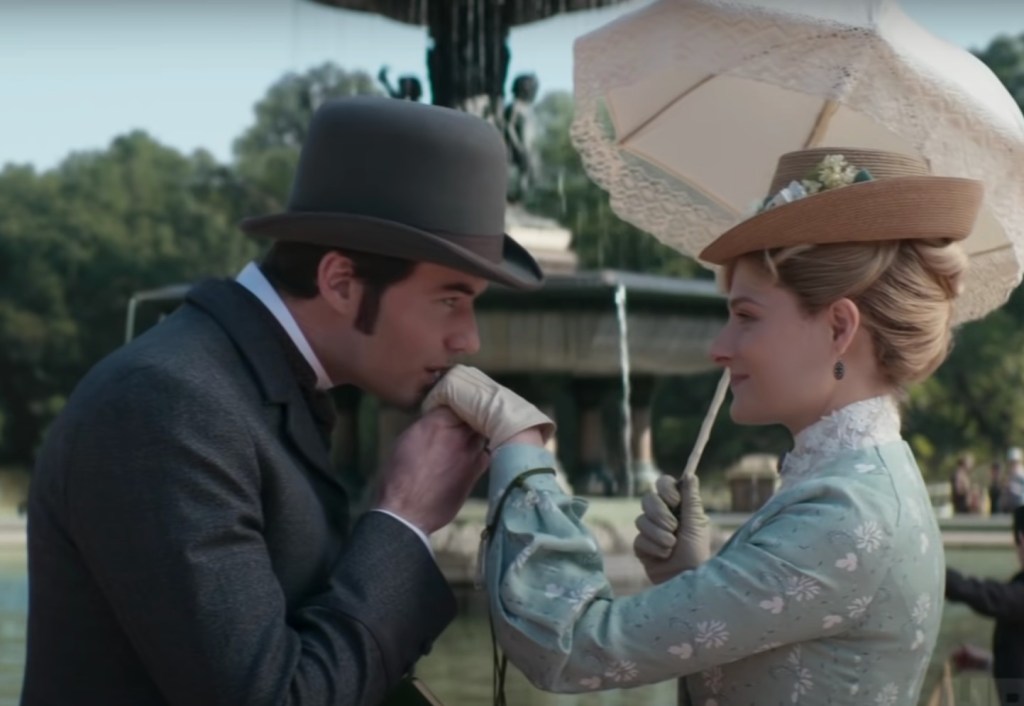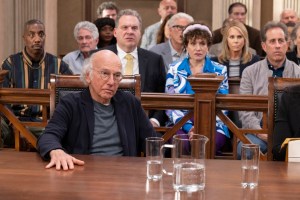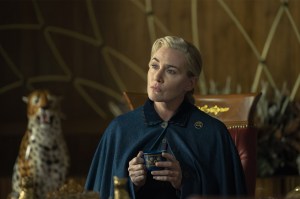I am on record as being somewhere between weary and terrified of the threatened arrival of Downton Abbey 2 in our movie theaters imminently. But this is also tinged with sadness. When Julian Fellowes emerged with his screenplay for Robert Altman’s Gosford Park in 2001, it fizzed with wit and imagination. Now, he has seemingly become the go-to chronicler of English upper-class life, churning out increasingly nonsensical variants on the same story with greatly diminishing returns.
So how does he fare when he turns his attention to American upper-class life?
The new HBO series The Gilded Age attempts to answer this question. It primarily concerns two New York figures in the 1880s, who are schematically represented as “snobbish Old Money” and “arriviste New Money.” The first is Agnes van Rhijn, a socialite who is proud of her family’s 17th-century heritage, and who zealously guards her position at the pinnacle of the city’s elite. The other is Bertha Russell, the fabulously wealthy wife of a robber baron who is equally zealously trying to break into Manhattan’s social stratosphere.
As usual with Fellowes, there is an upstairs-downstairs universe of largely bland supporting characters, including an English butler with a secret. We know this will be revealed before long because he says “I have no secrets,” which is a screenwriter’s wink at an audience that he very much does.
HBO acquired the rights to The Gilded Age after NBC abandoned the production in 2019, for unclear reasons. If HBO believes they have a success along the lines of Game of Thrones, or for that matter Downton Abbey, they will be disappointed. It seems likely, instead, that they’ve acquired the next Bridgerton.
Fellowes has never been one for the grittier side of drama — even his scenes of “below stairs” are so varnished and polished as to look like an aspirational advertisement for vintage crockery — and the complete absence of sex, violence and general obscenity is balanced with a surprising absence of drama. The casting of Meryl Streep’s daughter Louisa Jacobson in the key role of an ingenue, newly arrived in the city and almost immediately swept up in romantic and social complications, might be both an act of artistic nepotism and also an indication of the series’ relatively limited ambitions.
There are grounds for optimism as the show continues. The writing is prosaic and expository, as usual with latter-day Fellowes, and there is a disappointing paucity of bitchy one-liners. But Coon, a seriously talented actress, manages to turn her archetype into a complex human being through sheer force of on-screen magnetism and promises to remain a convincing and beguiling presence throughout the series. Baranski is, as ever, a class act (although Cynthia Nixon as her kindly sister is stranded in makeup and costuming that make her look like a camp ghost). And the promise of Nathan Lane appearing as Ward McAllister, the arbiter of social taste and the keeper of the Four Hundred — a kind of prototypical Time 100 — should offer some thespian riches.
But generally, The Gilded Age must be marked down as yet another disappointment from the no-longer-jolly-good Fellowes. Its depiction of contemporary racial and social distinctions is broad at best and cartoonish at worst, and its most dispiriting aspect is that it seems its creator no longer has anything very fresh or perceptive to say. Compare it to Tony McNamara’s The Great, a series so alive with intelligence and invention that it often seems as if it will explode, and the disappointment becomes ever-greater. But that is the trouble, so often, with gilt. It’s all surface, no substance.


















